Peta Credlin: Bill Shorten’s ‘solution’ is too taxing
PETA CREDLIN: If Labor doesn’t change the conversation, they cannot win the election. They are mired in a debate about border protection and immigration that they simply cannot win.
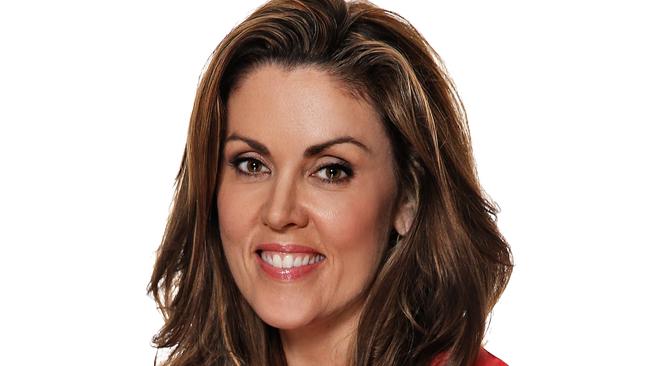
Federal Election
Don't miss out on the headlines from Federal Election. Followed categories will be added to My News.
IF LABOR doesn’t change the conversation, they cannot win the election. They are mired in a debate about border protection and immigration that they simply cannot win.
They have too much baggage. No one has forgotten the collapse of our borders under prime ministers Rudd and Gillard and everyone is anxious now that almost a quarter of Labor MPs and candidates are openly defying their leader.
Besides, the more Bill Shorten talks on these issues, the more he sounds like he’s trying to win the Green vote rather than inspire the new generation of Labor supporters, Bill’s Battlers if you like, which he must do if he’s to win.
Overall, this election pits a Coalition that seems less committed to economic reform at this election than it was at the last against a Labor Party that is rapidly retreating into 1950s-style big government interventionism.
To every problem, Labor’s answer is more taxing, more spending, more regulation and more public servants.
A pseudo domestic gas reservation is the latest example of Labor’s addiction to interfering in markets.
Bill Shorten has noticed the international trend to populism and sounds more like a Green every day, even joining the faux-outrage against Peter Dutton’s sensible observations about the impact of unskilled migrants on the labour market.
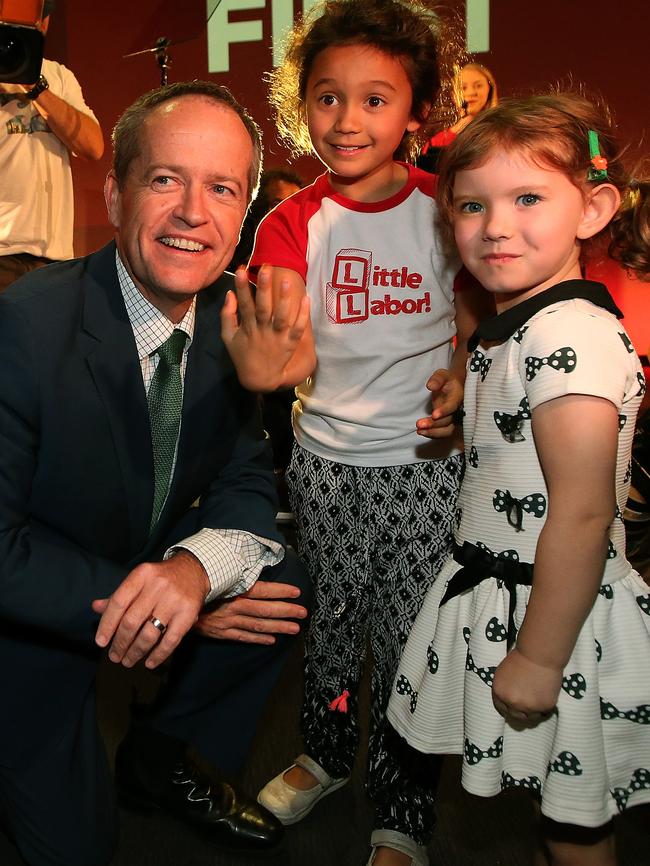
But after the government raised expectations on tax reform and on sorting out the dysfunctional federation, Coalition supporters are dismayed that they’re now in the too hard basket.
Last Thursday’s announcement that Labor would remove the current Medicare rebate freeze (which they actually introduced in 2013) was a valiant attempt to change the conversation. This week, expect Labor to continue the strategy of trying to wrest back the campaign by making announcements on subjects such as schools and hospitals that concern everyday people.
Both of these areas, health and education, are traditional Labor strengths so going there is predictable.
Here’s the less predictable. As the campaign progresses, expect Labor to try to trump the Coalition on budget responsibility by claiming a faster and surer path back to surplus.
This might seem bizarre from the party that, in government, produced the six largest deficits in Australian history. When the claim comes, the Coalition will remind voters of Wayne Swan’s 2012 budget opening: “The four years of surpluses I announce tonight…” Still, Labor leaders are nothing if not brazen and their $100 billion in extra taxes, not all of which is being spent on schools and hospitals, will lend some plausibility to their boast.
The fate of the 2014 budget, which was a courageous and necessary attempt to make long-term structural reform to deal with debt and spending, means that neither side has the stomach for serious savings.
Both sides are relying on optimistic growth and revenue projections (and implausible assumptions about spending restraint) in order to get the budget more-or-less to balance at the end of the forward estimates (that’s 2019-20).
But because Labor is reducing capital gains tax discounts and abolishing negative gearing for existing housing plus keeping the deficit reduction levy on high incomes and higher taxes on bigger companies, it has an extra $100 billion in revenue over the coming decade.
Labor will restore the tens of billions they claim has been cut from schools and hospitals and commit to new spending. But that still leaves tens of billions over 10 years that’s available for budget repair. It is true that there’s currently $15 billion in Coalition savings blocked in the Senate but it’s hard to see the government’s proposed cuts to family tax payments surviving this campaign.
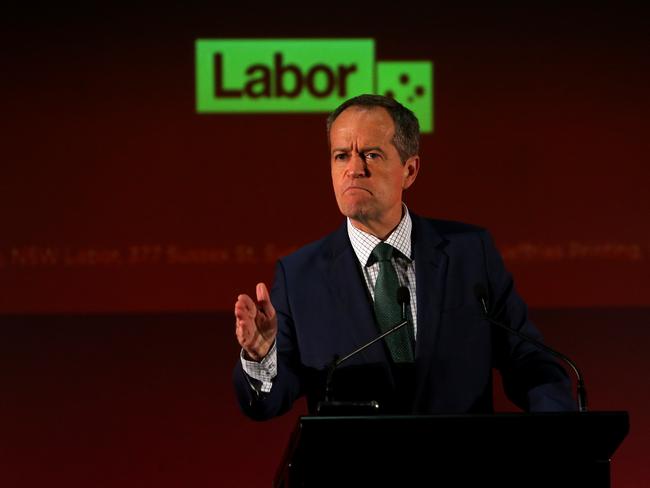
The fact that a return to surplus depends upon many factors, some of them — the terms of trade and world economic growth, for instance — beyond government control, is beside the point. It’s the politics that matter here: Labor wants to be able to say that it can keep spending on schools and hospitals and get back to surplus faster because of extra taxes that few ordinary voters will notice.
The Coalition’s “sell”, by contrast, is that we’ll get back to surplus because of the extra growth that company tax cuts will stimulate. It’s a much better economic argument but it’s funded by tax changes that the Coalition’s core supporters certainly have noticed: the big slug on superannuation that Labor has essentially matched.
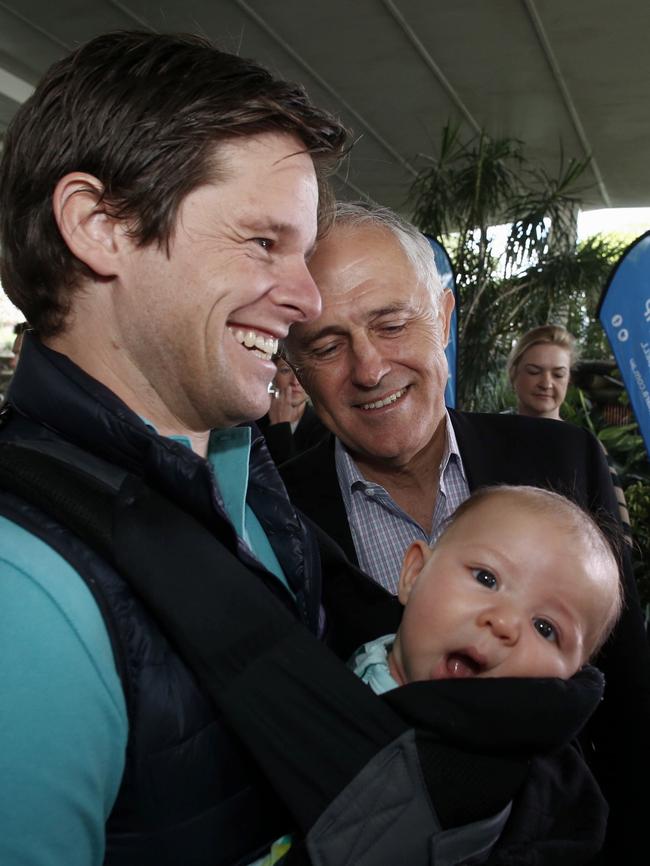
Come polling day, this will be Labor’s pitch: “We’ll spend more on schools and hospitals and we’ll protect the economy by getting back to surplus faster thanks to higher taxes on big companies and rich investors.”
The Coalition’s pitch will be: “We’ll cut taxes on companies to stimulate investment, jobs and prosperity and a stronger economy will produce higher profits that will make up for the extra taxes on your super.” Labor will claim, implausibly, that the extra social spending will boost the economy. It might, but only if it were accompanied by the reforms to make schools and hospitals more efficient that unions hate.
The Coalition’s claims, however, are undercut by the fact that lower company tax doesn’t fully come in for 10 years; and, even then, will leave our tax rate higher than the current OECD average.
For an economic plan, to date it’s thin on specifics. This will need to change in the next couple of weeks because people want to see more detail about how the plan for a “strong new economy” (especially that word “new”) will help them and their family.
Subjecting union officials to the same standards of transparency and accountability as company directors and restoring the rule of law in the construction industry are real economic reforms and are also the issues on which this election was called.
Almost no one is talking about them even though, if implemented at a post-double dissolution joint sitting, they would make a significant long- term difference. I will be listening to hear Coalition leaders making more of the real reforms they are backing.
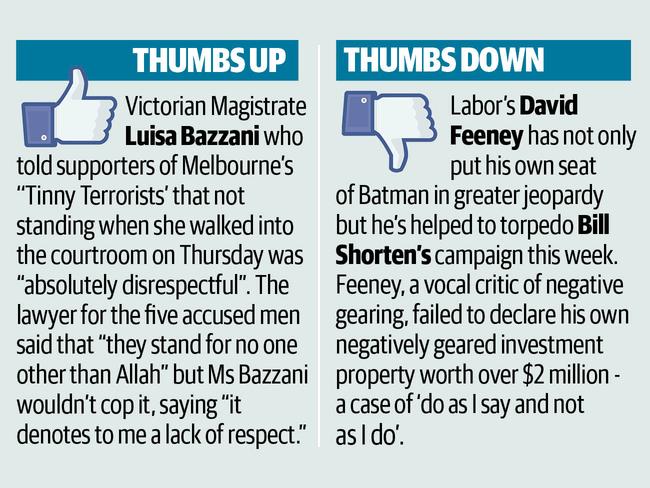
* Watch Sky News political contributor Peta Credlin appear exclusively on The Bolt Report, Ch601, Mondays, 7pm.
Originally published as Peta Credlin: Bill Shorten’s ‘solution’ is too taxing


